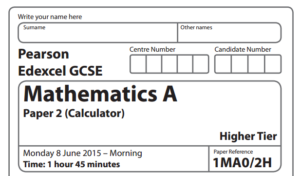“Almost 80% of pupils in England who do not achieve a C grade in GCSE maths or English fail to attain this mark during their resits. It is leaving hundreds of thousands of students stuck in a cycle of exams.” So reported the BBC this week on their website – link to article.
Failing Maths/ English GCSE multiple times is surprisingly common. We regularly encounter young people resitting for the third, fourth or even fifth time. Multiple disappointments take their toll on emotional well-being: it’s hard to keep studying a subject you don’t enjoy and which you find difficult.
GCSE resits are extremely costly for those students who are not enrolled in school or college and have to pay exam entry fees. Private companies charge around (and often over) £200 per GCSE. Schools charge more – but most no longer accept external candidates for GCSE resits.
Then, in the case of the Maths GCSE exam, there is the question of relevance. It couldn’t reasonably be argued that universities and colleges should not expect a basic standard of numeracy and literacy. However, grade C at Maths GCSE does not always represent this.
Maths GCSE is divided into two tiers: Foundation and Higher. Foundation tier is for those students not expected to achieve above a grade C, but – and it’s a huge but – students have to score around 80% on the paper in order to secure this grade. Students who sit Higher tier – which is far more difficult and covers challenging topics such as solving quadratic equations – need only score around 20% to secure a grade C. So the easiest way to secure a grade C is to sit the Higher tier, concentrate on developing a vague grasp of trigonometry at the expense of learning about fractions decimals and percentages, and succeed by getting most of it wrong.
In 2017, students will sit the new Maths and English GCSEs, with grades of 9-1. You can read more about the new GCSEs here on our blog. The situation described above is highly unlikely to improve.
Many young people put their lives on hold while they try and achieve a grade that will allow them to study for their chosen career, e.g. nursing. We believe that a new maths exam should be introduced that focuses on arithmetic (numbers), measures and interpreting data (understanding statistics, deciphering charts, etc.).
After all, few of us could care less whether our nurses can accurately use Pythagoras’ Theorem



